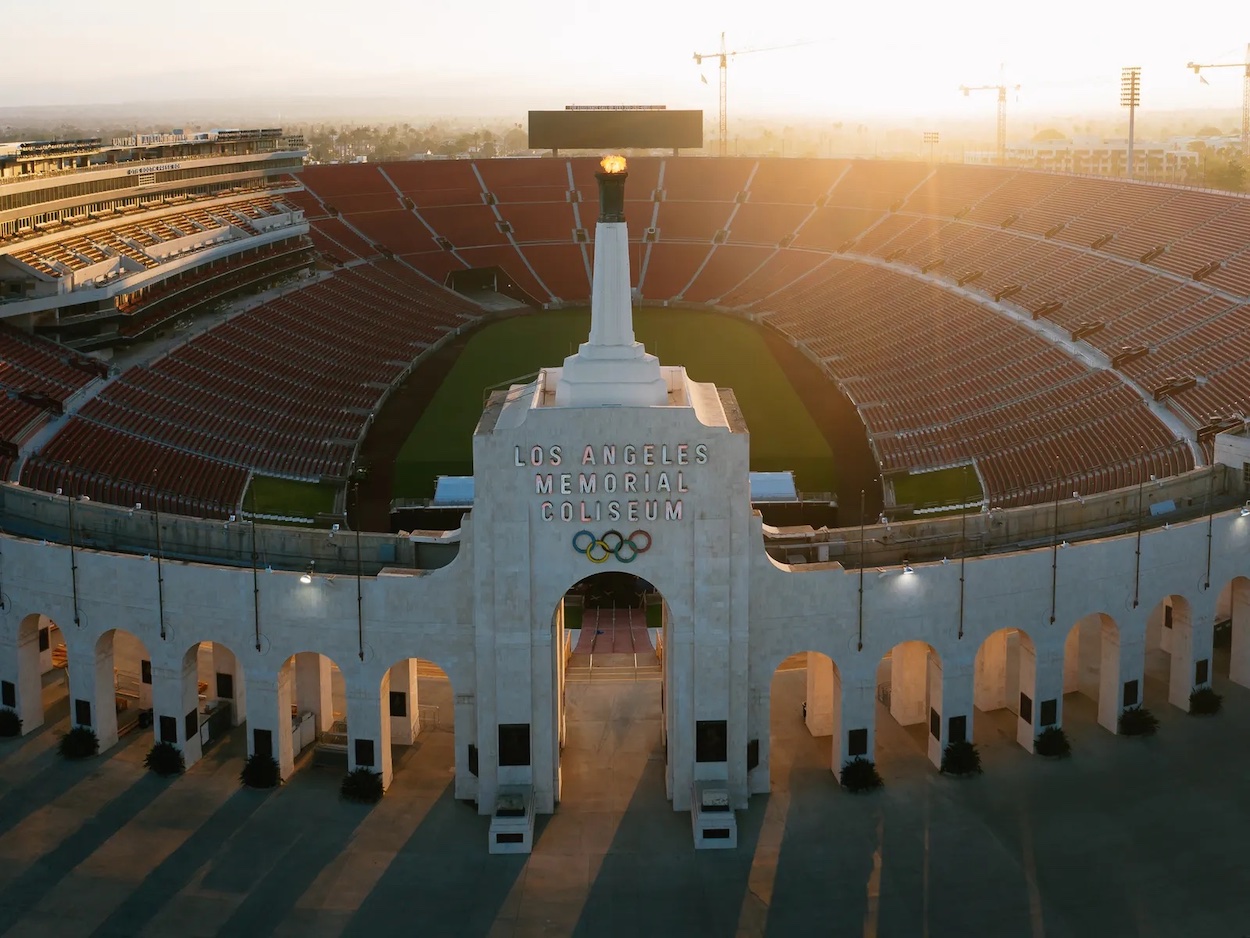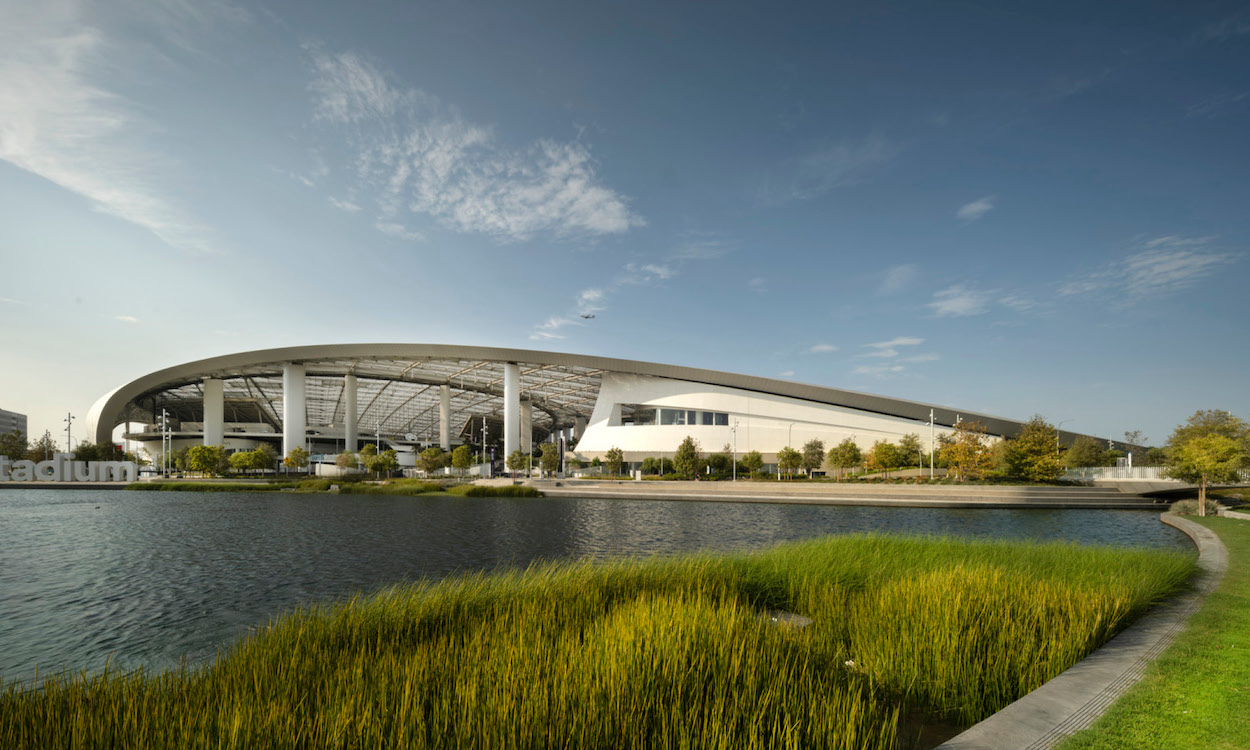The 2028 Summer Olympic Games are a touchy subject for Angelenos: a recent survey revealed a mere 57 percent of residents believe the event will leave a positive impact on the city. The trepidation is understandable: the Olympics have developed a reputation as a massive receptacle of taxpayer funds given the level of investment and infrastructural improvements required from host cities. Critics also cite the environmental impact of developing gargantuan, starchitect-designed competition facilities—so many of which are summarily abandoned that an entire genre of photography has sprung up, dedicated to cataloging the ruins of Olympics in cities like Rio de Janeiro, Athens, and Berlin.
Similar misgivings about the 2028 Summer Olympics abound, from worries of a ballooning budget to traffic and infrastructure concerns. Yet the Games present an opportunity for long-needed improvements in Los Angeles, from public land revitalization to rail transit milestones and water quality.
What the City of Angels has on its hands isn’t a problem of design, but of communication. Following in the footsteps of the 2002 Salt Lake City Winter Olympics, L.A. is using the occasion to secure state and federal funding for projects with long-term benefits. The Inglewood Transit System, for example, was recently awarded $407 million to build two new stations and connect the neighborhood’s K Line transit station to SoFi Stadium, the Kia Forum, Hollywood Park, and the forthcoming Intuit Dome. All are popular destinations for concerts and sporting events, and are expected to host opening and closing ceremonies, soccer matches, archery, and gymnastics in 2028.

